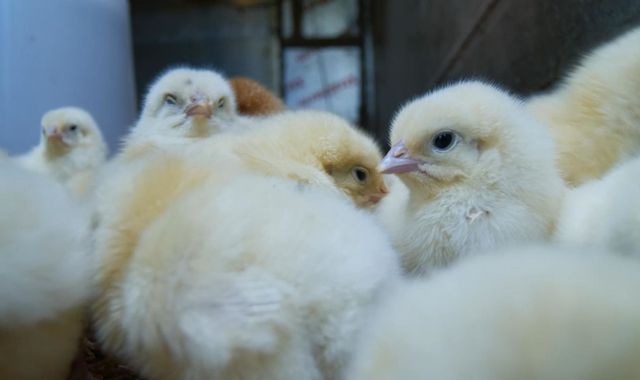‘No health problems with chlorinated chicken’ – Govt’s chief scientific adviser
Written by News on 29/08/2019
There is no ‘scientific’ reason to ban chlorinated chicken or hormone beef in a post-Brexit trade deal with America, a senior government scientist has told Sky News.


Sir Ian Boyd, chief scientific adviser at the Department for Environment, Food and Rural Affairs (Defra), said there’s no evidence the controversial meat is harmful and British consumers should be allowed to choose whether they want to eat it.
Chlorine is widely used in the US to sterilise chicken carcasses. The birds are raised in such crowded conditions that infection rates with salmonella and listeria are high.
“From a health perspective there really isn’t a problem with chlorinated chicken,” Sir Ian said.
“The issue is about production processes and animal welfare, and that is a values-based choice that people need to make.
“My view is that we need to be allowed to make that choice.
“But it is the job of people like me to make sure that we explain as clearly as possible what the consequences of different choices are for people.”
Before he had become Prime Minister, Boris Johnson in March this year said chlorine-washed chicken was a “public safety no-brainer”. And the US Ambassador Woody Johnson has insisted it should be included in a future trade deal.
But the National Farmers’ Union has warned cheap production methods with low animal welfare standards could put British poultry producers out of business.
Sir Ian said there was also no good reason to ban hormone-treated beef, a practice used in the US to bulk up animals faster and reduce costs.
The EU has banned the feeding of hormones to cattle over fears that it may cause cancer.
But Sir Ian said the amount of hormone is extraordinarily small.
“The chances are that most of it will have been metabolised when it comes into the meat you would eat,” he said.
“The chances of it having any biological effect on us is almost infinitesimally small.”
He said the decision on whether to allow such meat in the UK is a political and ethical one.
Sir Ian was speaking in one of his last interviews before stepping down as Defra’s chief scientist after advising ministers for the last seven years.
He said one his proudest achievements was taking action on single-use plastic. Sky’s Ocean Rescue campaign has been raising awareness of ocean plastics and called for legislation to tackle the problem.
The scientific adviser also admitted concern that efforts to ensure environmental protection after Brexit remains “at least as good or improved” may not be achieved.
Several hundred EU environmental laws will have to be moved across to British legislation overnight following a no-deal Brexit on 31 October.
“There will always be suspicion because people will not completely trust that the ambition can be followed through and delivered on.
“Do I trust it? No I don’t. I have similar suspicions.
“But we should all drive for the ambition and if we are all adamant for it and hold our politicians to account we should get there in the end,” he said.
Sir Ian said climate change must remain a priority for the government. Earlier this summer outgoing Prime Minister Theresa May committed the UK to all but eliminating greenhouse gas emissions by 2050.
“I don’t think any of us have any idea of the mountain we have to climb to get to that,” Sir Ian said.
“I see the government taking a big deep breath and trying to figure out what that pathway might be for the future.
“Over the next few years we will see that pathway emerge. But it is very challenging for everybody.”
Professor Gideon Henderson, an expert in ocean sciences and climate change, will replace Sir Ian as chief scientific adviser.
(c) Sky News 2019: ‘No health problems with chlorinated chicken’ – Govt’s chief scientific adviser







